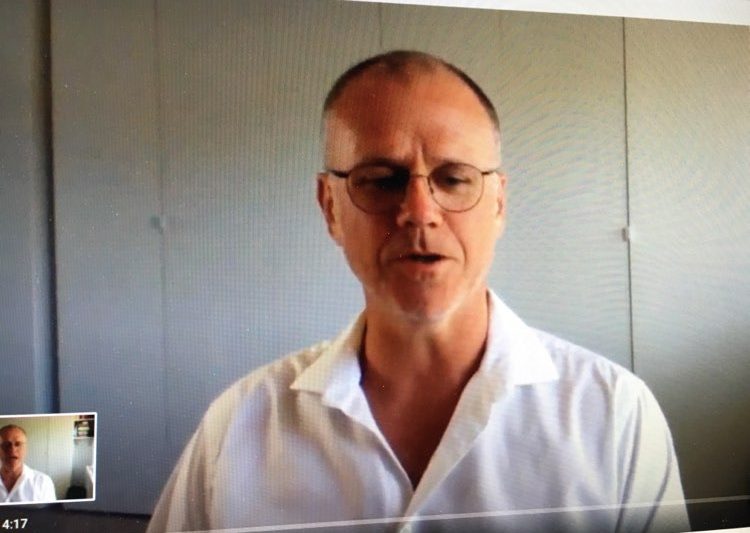Tony’s Chocolonely is not so lonely anymore in its global mission for slave free chocolate

With physical meetings all but impossible around the world owing to the ongoing coronavirus pandemic, it’s good to see businesses staging some strong topical food for thought online, including Tony’s Chocolonely’s latest webinar presentation.
As we have previously reported, the company’s core mission of striving to help the chocolate sector achieve 100% slave free production are highly commendable and it’s a target that the industry is very much responding to in targeting full traceability of confectionery operations.
While Tony’s and many other leading players in the market acknowledge there’s still a long way to go, it’s only by combined thoughts put into action that tangible success will be made on this most troubling of issues.
Speaking for Tony’s Chocolonely this week, ‘chief choco evangelist’ Ynzo Van Zanten (pictured delivering his webinar) underlined this very point, that the company’s engagement with around 6,500 farmers across key markets of Ghana and Ivory Coast (which between them produce around two thirds of the world’s cocoa), remains an ongoing mission. The task they face is vast – with around 2.3 million children in those two countries involved with child labour – 90% illegally so by the company’s estimation. It’s this startling statistic that they are trying to make inroads upon.
The way to achieve this goal? Well, in their eyes, the key to it lies in continuing to raise awareness among consumers, and to make them realise that it really is within their power to make a difference by the choices they make. As Van Zanten notes, Tony’s chocolate has been very deliberately designed to be of pieces that are unequal in size that represent the inequality that still exists within the supply chain. Farmers are typically earning well under $1 dollar a day, making this significantly below UN poverty line definitions that has resulted in a huge problem for these nations. In response Tony’s pays a Fairtrade premium, as well as a further payment from the company to help boost farmers wages to what would be considered a living wage. This is an excellent gesture from a truly responsible company, but by the team’s own admission, they can’t change the sector on their own.
But they’re certainly blazing a trail for making lasting change, which is continuing through opening a store in the heart of Amsterdam, which serves to both boost its revenues, and tap into the capital’s huge tourism market, spreading the word on how ethically created chocolate is now the industry norm rather than the exception.
It’s an issue that we continue to highlight within our magazine as it’s such a central part of our industry, that it is heartening to see the efforts of companies like this (which also plans to expand with its own factory to enlighten consumers even further), as well as the action programmes now in place from the likes of Mondelez International, Mars, Olam, Barry Callebaut, Cemoi, Cargill and Ferrero in how they are collectively seeking to make a difference in working with governments and NGO’s to effect change. As we’ve noted before, solving the huge major underlying problem of rural poverty isn’t something that can be solved overnight, but taking an ethical stance is something that the industry is embracing, and rightly so.
Keep in touch at [email protected] or via social media @confectionprod



